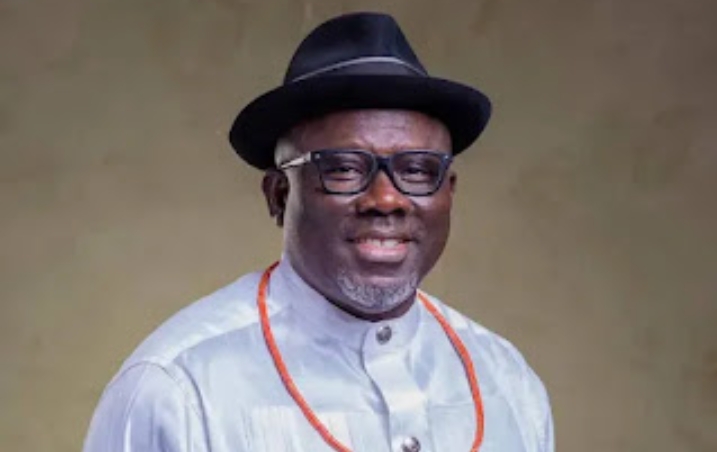By Tony Eke
A reforming essence is progressively sharpening the vision of Delta State Governor, Rt. Hon. Sheriff Oborevwori since he took office. A measure of this is evident in his restructuring of two critical ministries, ostensibly to accord with compelling circumstances. The governor’s choice of education and works is not by happenstance but informed by what he may have deemed as their centrality to optimal service delivery by his administration. It’s for the good of the state that he deliberately made the two ministries larger than what he inherited from his predecessor.
But the governor was not done with works ministry even after he had split it into Urban and express roads and Rural & Riverine roads, manned by Hon. Rueben Izeze and Mr. Charles Aniagwu respectively. Just last July, he further divided the Rural & Riverine Roads by creating a directorate of Riverine Roads and appointing a commissioner, Mr. Ebikeme Clark, to preside over its affairs and attend to the envisaged requests for roads in due course.
That decision may have confounded critical groups given its deviation from the norm. It’s however clear if one undertakes an exploration or an interrogation of that initiative which underscores the overriding need for building, renewal, and consolidation of roads across the state. Oborevwori’s emphatic emplacement of roads whether in the upland or in the riverine area is apparently in furtherance of an unofficial consensus by successive governors to enrich Delta State with vital infrastructure needed to promote social and economic development.
Agreed that political undertones might have been imputed to it, but Oborevwori’s creation of that directorate is a welcome development as over one-third of the state’s geography is either coastal or riverine comprised of swathes of low-lying locations interspersed with wet, marshy lands. Unless one has visited any or crisscrossed multiple riverine communities will he understand what it takes or how it feels to live in such an environment. Save for acclimatisation induced by a constraining factor, a brief stay in one of those places without roads and social facilities is better imagined than experienced.
What’s so obvious is the governor’s keenness to walk a path earlier trodden by his predecessors. So, he will building on the achievements of ex-Governor James Ibori, who as a pacesetter broke the jinx of linking the two backwaters of Aboh and Bomadi communities with bridges in 2001. Those bridges are symbolic beyond their physical service to motorists and commuters. The one across Forcados River later provided an impetus to the Niger Delta Development Commission (NDDC) to embark on a massive construction of roads from Bomadi to other Ijaw communities characterised by impenetrable thickets of mangrove swamps. Similarly, former governors, Dr. Emmanuel Uduaghan and Dr. Ifeanyi Okowa, initiated and worked on a number of projects, including the Trans-Warri road which Oborevwori pledged to complete in 2026.
Understandably, the alienation induced yesteryears by the marginalisation of these communities has been reduced to an extent. This why the pervasive state of utter neglect I saw in Bomadi and Akugbene-Mein in 1997 is different scenario today. The same level of relative improvement can be said of Okpai and Aboh which were only accessible by a narrow road that looked like a farm path supported by an antiquated pontoon ferrying travellers across the Ase Creek. Today, a bridge that was awarded and started by former Governor Okowa, now virtually completed by Oborevwori, has made some difference in the lives of our people.
Two major reasons make it imperative to provide roads in the riverine areas. Apart from being parts of the state, these communities have bounteous deposits of crude oil and gas in their bosoms which generate huge revenues that make Delta State the envy of other sub-nationals. If our country was not blighted by serial poor leadership for decades, we will not be talking about building riverine roads after sixty-four years of independence. It’s a matter of concern that the interventionist agencies such as NDDC and our own Delta State Oil Producing Area Development Commission(DESOPADEC) are hamstrung by the peculiar Nigerian factor to adequately cater to the development needs of oil-bearing communities.
The challenges ahead of the new directorate may be daunting but not insurmountable with a prompt conception of an action plan and its segmented implementation by Ebikeme Clark and his lieutenants. The directorate should, as a matter of necessity, embark on a tour of the riverine areas to get first-hand knowledge of the inherent topographical variation, itemise the number of roads for construction, and ensure an equitable spread amongst communities in the three senatorial districts. Delivering on this worthy initiative is so vital as Oborevwori pushes for a new lease of life in those areas.
Tony Eke, a journalist based in Asaba, Delta State, can be reached via tonek6819@gmail.com or on 098035504896 (text only).
